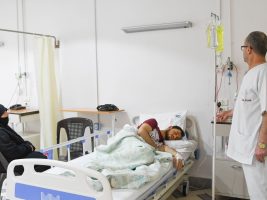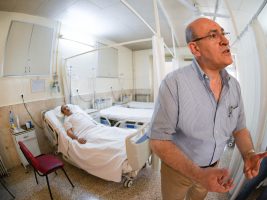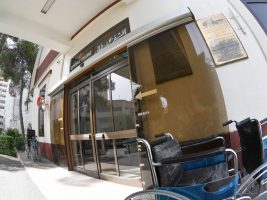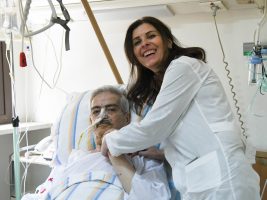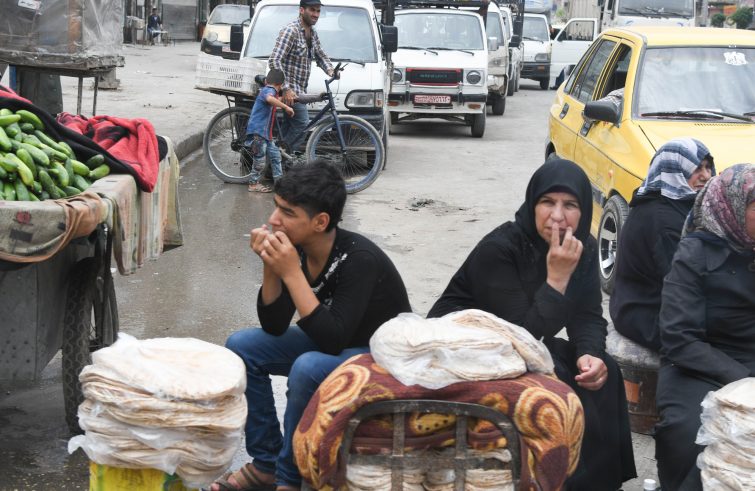
“We are victims of oblivion. We call on the international community to lift the sanctions that are impoverishing the Syrian people day after day. They violate human rights, they are inhuman because they harm the entire population. People here are starving to death. There are no medicines. There is no work”,
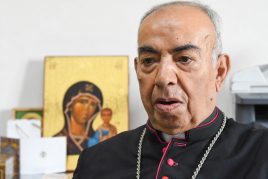 said Monsignor George Abou Khazen, Latin Apostolic Vicar of Aleppo, a martyr city of the Syrian war, now in its tenth year. The Archbishop is not only concerned about the conflict, or Covid-19. The Syrian population, he declares, is increasingly oppressed by “international sanctions and their consequences.” On 28 May last, the EU extended the restrictive measures against the Syrian regime for another year, until 1 June 2021. From 17 June, however, the sanctions imposed by US President Donald Trump, under the “Caesar Syria Civilian Protection Act”, are due to enter into force. EU sanctions, first adopted in 2011 in response to the Syrian regime’s repression of the civilian population, affect businesses and entrepreneurs who have business dealings with the regime and its wartime economy. Among other things, the sanctions ban the import of oil, impose restrictions on specific investments and on equipment and technology that could be used for internal repression purposes. The Caesar Act also imposes sanctions on Syrian leaders, companies, States and individuals who militarily, financially and technically support Assad’s government and its allies Russia and Iran. Other US sanctions have been in place since prior to the 2011 insurgency.
said Monsignor George Abou Khazen, Latin Apostolic Vicar of Aleppo, a martyr city of the Syrian war, now in its tenth year. The Archbishop is not only concerned about the conflict, or Covid-19. The Syrian population, he declares, is increasingly oppressed by “international sanctions and their consequences.” On 28 May last, the EU extended the restrictive measures against the Syrian regime for another year, until 1 June 2021. From 17 June, however, the sanctions imposed by US President Donald Trump, under the “Caesar Syria Civilian Protection Act”, are due to enter into force. EU sanctions, first adopted in 2011 in response to the Syrian regime’s repression of the civilian population, affect businesses and entrepreneurs who have business dealings with the regime and its wartime economy. Among other things, the sanctions ban the import of oil, impose restrictions on specific investments and on equipment and technology that could be used for internal repression purposes. The Caesar Act also imposes sanctions on Syrian leaders, companies, States and individuals who militarily, financially and technically support Assad’s government and its allies Russia and Iran. Other US sanctions have been in place since prior to the 2011 insurgency.
“The international community should undertake an examination of conscience. For us, sanctions are a crime.”
remarked the Vicar -. We are very disappointed with the EU. Who knows what will happen with the entry into force of Trump’s Caesar Act. We need peace, but now the priority is to survive”.
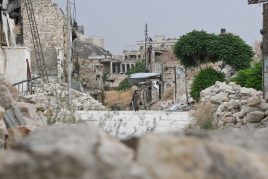 The greatest fear and the crisis in Lebanon. Local sources who asked to remain anonymous confirm the gravity of the situation in Syria: “To date, the Syrian people’s greatest fear is not the pandemic but widespread poverty caused by years of war, sanctions and economic crisis.”
The greatest fear and the crisis in Lebanon. Local sources who asked to remain anonymous confirm the gravity of the situation in Syria: “To date, the Syrian people’s greatest fear is not the pandemic but widespread poverty caused by years of war, sanctions and economic crisis.”
The indicator of the current crisis is the depreciation of the local currency resulting in soaring prices for all commodities including medicine and foodstuffs. The Lebanese financial crisis is playing a decisive role in the devaluation of the Syrian pound. In fact, for Syria, the Country of the Cedars has always represented a gateway to the outside world, especially after the imposition of Western sanctions. Accounts and savings of many Syrians are deposited in Lebanon and Lebanese banks facilitated Syrian traders and entrepreneurs in their business activity. That was true up until a few months ago, when the signs of the crisis that would have led Lebanon to default in March 2020 in fact resulted in banking restrictions on the withdrawal of US dollars and savings, and the freezing of Syrian deposits in Lebanese banks. The collapse of the Lebanese pound was followed by the collapse of the Syrian currency.
“Every day we see a drop in our currency with a subsequent rise in prices – sources say – people can’t afford to buy food. In the last six weeks the Syrian pound lost approximately 65% of its purchasing power. While the US dollar exchange rate used to amount to 1,000 Syrian pounds, it now exceeds 3,000 pounds. At the beginning of the war (2011), 50 Syrian pounds amounted to one dollar.”
Those who hoped that with the end of the lockdown customers would return to crowd coffee shops and stores in Syrian cities had to think again. Economic recovery will require more time: “As prices grew, so did the despair and anger of the people.”
Medicine shortage, pharmacies are closing down. Serious repercussions also on the health system, already devastated by the war: “Syria’s pharmaceutical industries halted production due to a lack of expensive raw materials. Production costs exceed the selling prices set by the government. Thus medicine production involves loss of money. The result is a shortage of medicines and people hoarding drugs, especially for chronic diseases. Many pharmacies were forced to close for lack of supplies. Some hospitals are struggling to stock up on toilet paper and common medicines.” In this grim context, free treatment to the most disadvantaged groups is offered by three Catholic hospitals of the “Open Hospitals” project, developed by Card. Mario Zenari, Apostolic Nuncio to Syria, who entrusted its coordination to AVSI, an international organization offering assistance to the Syrian population on many fronts.
“Healthcare treatment for the local population is being continued at the Italian and French hospitals in Damascus and at St. Louis Hospital in Aleppo,” AVSI explained. We are trying to admit ever-increasing numbers of patients and save as many lives as we can. Severe diseases such as cancer have increased in recent years, especially among the young.”
- Foto Calvarese/SIR
- Foto Calvarese/SIR
- Foto Calvarese/SIR
- Foto Calvarese/SIR
Against sanctions. The NGO New Humanity, with its associate AMU – Action for a United World, is campaigning against sanctions on Syria, calling for their immediate suspension “at least for medical supplies and materials and for funds to cover these costs.” The recipients of the appeal, signed to date by over 17,000 people, include António Guterres, UN Secretary General; Donald J. Trump, President of the United States of America and David M. Sassoli, President of the European Parliament.
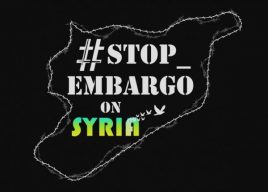 The promoting NGOs belonging to the Focolare movement informed SIR that “this initiative is independent of any political or ideological orientation with the objective of protecting the Syrian civilian population.” “The sanctions – say the NGOs – prevent investments and financial transactions, thus hindering trade, imports and exports. Syrians living abroad can no longer send money to family members.” The NGOs continue reporting ” hypocrisy surrounding the subject of sanctions:
The promoting NGOs belonging to the Focolare movement informed SIR that “this initiative is independent of any political or ideological orientation with the objective of protecting the Syrian civilian population.” “The sanctions – say the NGOs – prevent investments and financial transactions, thus hindering trade, imports and exports. Syrians living abroad can no longer send money to family members.” The NGOs continue reporting ” hypocrisy surrounding the subject of sanctions:
They imposed an embargo on the purchase of iron because it could be used for military purposes only to allow weapons to arrive into Syria from all over the world.
Rather than impoverishing the Syrian people with sanctions, the EU and the US should instead identify avenues of dialogue for a negotiated solution to the conflict. Until now, there have never been people in Syria rummaging for food in garbage cans or selling their kidneys.” The Pro Terra Sancta Association, NGO of the Custody of the Holy Land, joined in the appeal for an end to the embargo on Syria, along with the Syrian Trappist nuns. In a letter the nuns call for an end to the sanctions which, they say, “are not the only root cause of Syria’s many difficulties. There are many responsibilities, including internal ones. The Country is now facing an economic war, to partition areas of power, for economic privileges and to exert influence over the territory”. This is why
“the internal political-economic system is urged to fight corruption and promote growth, serving the interests of the country by assisting all of its citizens.”

